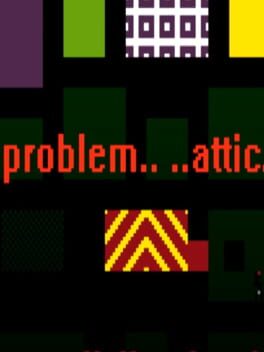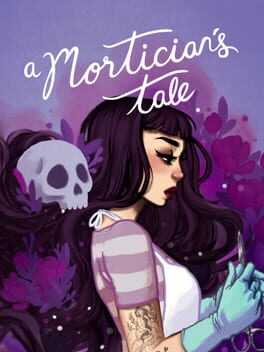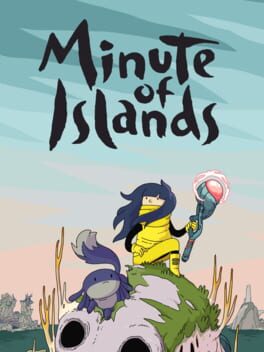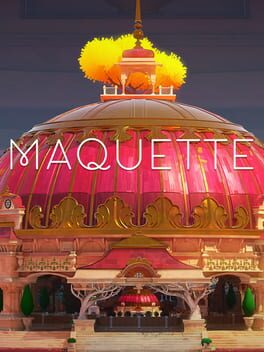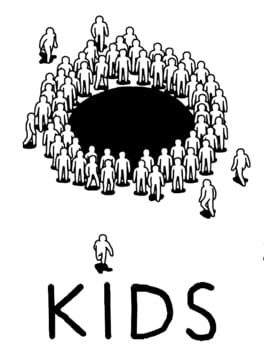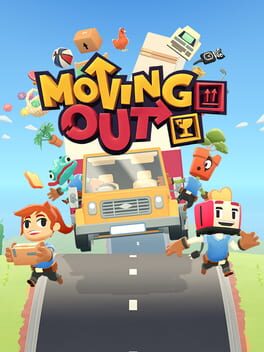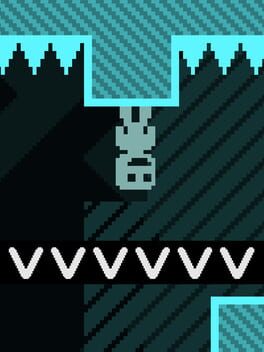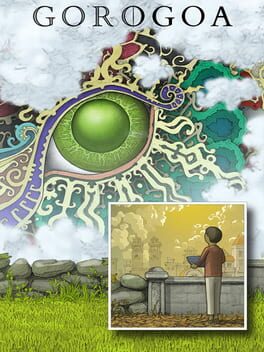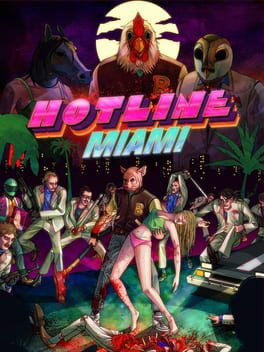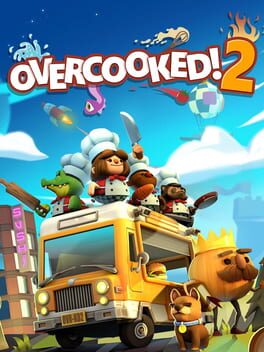Bjorn
2020
2013
It feels like a game that wasn't mean to be played, a game that is exists in the space between levels, making use of glitches and weird broken difficult to maneuver exploits to progress through it. An anti-game design game, but weirdly still engaging and playable, if also frustrating, confusing, and unnerving. It's rules are arcane and confusing and work in weird ways that don't make sense to a person, making it much more similar to the real world than most video games.
2018
While this is certainly among the best video games I’ve ever played just from a mechanics perspective, what I really love about this game is that it is perhaps my favorite Spider-Man story I’ve ever experienced.
Of course, it’s easy to be biased, because the story seemed tailor-made for my life experience. I’m the same age as the game’s Peter, no longer the wide eyed irresponsible teenagers we once were. This Spiderman has been a hero for eight years. He’s a professional who’s settled into a comfortable relationship with the NYPD and has his patrols of the city down to a professional clip. It’s like playing returning to the Spiderman I remember from my youth, catching up, seeing how things have changed and where he’s at in life. Of course, since this is our first interaction with this version of Spider-Man, the story can still save his most iconic villains, spending them at just the right moments.
They’ve clearly done their research, and they nail Spiderman: all the right ingredients that make him iconic and distinct, but remixed in a way that makes them feel fresh and unexpected. I’ve never spent so much time with an older Spiderman, a version very present in the comic book mythologies but that I’ve never seen onscreen before. It’s a great world to explore, a Spiderman who’s active on Twitter and gets in awkward conversations with his ex-girlfriend as he swings around New York.
The map is fantastic: a miniature Manhattan that you are able to glide through easier than anyone trapped in the traffic and inconsistent subways below you. You can explore every corner of it from the first moment of the game. After all, you are Spiderman: Manhattan is your home. The entire island. You patrol it, like a cat guarding its territory, driving out unwanted intruders and helping the civilians under your protection. As the game progresses, the map changes, growing more dangerous, filled with more different types of criminals, populated by more homeless people, trash fires, and accidents. It’s some of the best environmental storytelling I’ve seen. It gets you familiar with a location, then changes the feeling of the location. You don’t have to travel to see movement - the world moves through time, and you experience the heartbreak of seeing familiar locations crumble.
Of course, this is made all the more fun because I am living in Manhattan right now! As spiderman, I can go to the neighborhood where I live, webswing along the route I take to campus, and even fight goons in a faithful recreation of the school I spend so much of my time in! I can look at the Alma Mater statue in person and remember standing on top of it as Spiderman, or of leaping off the roof of Dodge Hall as I fight Demons. Once, while on a run through Central Park, I discovered a ruined fort, just four walls and flag. The next day, I discovered the same landmark while web slinging around the park as Spiderman. It’s not the same Manhattan at all, since most of the map is randomly generated buildings, but it’s similar enough to give me an odd double sense of being able to inhabit the real world of my experience, something I’ve never had before.
The web singing is easy and incredibly fun. My favorite part was aimlessly swinging from building to building, flinging myself into the air, whipping myself around corners, and barely avoiding slamming into the sides of buildings. My one tiny quibble: I wish they made you fall toward the center pivot of your swing, just to feel a little more realistic and a little more tactical. But it’s a minor criticism for one of the best mechanics I’ve found in any game.
The other part of the game is Arkham Asylum style combat: you drop into a group of enemies and automatically punch those closest to you, leaping away with the dodge button whenever your spider sense tingles. It’s very very very smooth, exhilarating and satisfies some violent urge in my bones. My favorite movie is when I slide under someone, then continue chaining attacks on them up from the other side, using their body as cover form the bullets or punches coming at me that I would have had to dodge otherwise. Spiderman has the coolest style of fighting, and it’s a joy to do it.
But it’s the way the two come together to really make the game, and really make you feel like Spiderman. You webswing exhilaratingly through the city, then drop down to the street to beat up some thugs threatening your neighborhood. Once they’re webbed up, you swing away, continuing your patrol. It’s what spiderman does in his day to day. The comics depict the more narrative things that happen, but when the story isn’t happening, all he does is patrol Manhattan and fight people. This is the superfun experience the game allows you to have, effortlessly moving, fighting, and transversing again, feeling like you are living the day-to-day of Peter Parker. You long to be out there on the web whenever you are out-of-costume, making you realize the element of selfish fun that must be part of what draws Peter to his life as Spiderman, no matter how much the narrative paints his double life as terrible.
But the narrative does successfully convey the struggle of his life, the pressures he must feel, in a way no other spiderman story has for me. Seeing his relationships jeopardized time and time again, understanding the duty he has, seeing his best friends turn on him — it’s a great distillation of the best elements of the comics. Spending so much time with the character really allows you to understand what kind of icon they are.
A more troubling aspect I realized while playing is the way that Spiderman is an extension of the police state. He is all about squashing unrest, maintaining order, policing the streets and enacting violence in the name of preserving day to day social structures because he has the force to do so. This game makes it more explicit: he works with a police officer, Yuri, who tells him what to do and where to go, and so he works alongside and for the NYPD. The villains are all criminals. Many of them are escaped prisoners from Ryker’s island, who are portrayed as pure menaces, which no place to belong but in the criminal justice system. Spiderman defends the prison industrial complex, unquestioningly fighting, beating up, and capturing people the state deems as criminal wherever he sees them. He throws people off roofs and beats them senseless, just because they are dealing drugs or wearing jumpsuits.
Perhaps to offset these questionable politics, the game also adds super-militarized mercenaries who work for the CEO/mayor, Normal Osborn. They arrest protestors and harass people, and beating up the authoritarian fascists feels a lot more heroic then when Spiderman drops down to beat the shit out of drug dealers. Norman Osborn’s character is interesting - a clear statement about the corporate-government ties in America, placing Spider-man’s greatest villain at the head of the government. But Spider-man supports and protects him throughout the whole game: the villains are those trying to punish Osborn. Osborn never even turns to villainy in this game, although the hints and suggestions are there, of course. We’ll have to wait until part 2 to see Spiderman fight the corporate police state, I guess.
Of course, it’s easy to be biased, because the story seemed tailor-made for my life experience. I’m the same age as the game’s Peter, no longer the wide eyed irresponsible teenagers we once were. This Spiderman has been a hero for eight years. He’s a professional who’s settled into a comfortable relationship with the NYPD and has his patrols of the city down to a professional clip. It’s like playing returning to the Spiderman I remember from my youth, catching up, seeing how things have changed and where he’s at in life. Of course, since this is our first interaction with this version of Spider-Man, the story can still save his most iconic villains, spending them at just the right moments.
They’ve clearly done their research, and they nail Spiderman: all the right ingredients that make him iconic and distinct, but remixed in a way that makes them feel fresh and unexpected. I’ve never spent so much time with an older Spiderman, a version very present in the comic book mythologies but that I’ve never seen onscreen before. It’s a great world to explore, a Spiderman who’s active on Twitter and gets in awkward conversations with his ex-girlfriend as he swings around New York.
The map is fantastic: a miniature Manhattan that you are able to glide through easier than anyone trapped in the traffic and inconsistent subways below you. You can explore every corner of it from the first moment of the game. After all, you are Spiderman: Manhattan is your home. The entire island. You patrol it, like a cat guarding its territory, driving out unwanted intruders and helping the civilians under your protection. As the game progresses, the map changes, growing more dangerous, filled with more different types of criminals, populated by more homeless people, trash fires, and accidents. It’s some of the best environmental storytelling I’ve seen. It gets you familiar with a location, then changes the feeling of the location. You don’t have to travel to see movement - the world moves through time, and you experience the heartbreak of seeing familiar locations crumble.
Of course, this is made all the more fun because I am living in Manhattan right now! As spiderman, I can go to the neighborhood where I live, webswing along the route I take to campus, and even fight goons in a faithful recreation of the school I spend so much of my time in! I can look at the Alma Mater statue in person and remember standing on top of it as Spiderman, or of leaping off the roof of Dodge Hall as I fight Demons. Once, while on a run through Central Park, I discovered a ruined fort, just four walls and flag. The next day, I discovered the same landmark while web slinging around the park as Spiderman. It’s not the same Manhattan at all, since most of the map is randomly generated buildings, but it’s similar enough to give me an odd double sense of being able to inhabit the real world of my experience, something I’ve never had before.
The web singing is easy and incredibly fun. My favorite part was aimlessly swinging from building to building, flinging myself into the air, whipping myself around corners, and barely avoiding slamming into the sides of buildings. My one tiny quibble: I wish they made you fall toward the center pivot of your swing, just to feel a little more realistic and a little more tactical. But it’s a minor criticism for one of the best mechanics I’ve found in any game.
The other part of the game is Arkham Asylum style combat: you drop into a group of enemies and automatically punch those closest to you, leaping away with the dodge button whenever your spider sense tingles. It’s very very very smooth, exhilarating and satisfies some violent urge in my bones. My favorite movie is when I slide under someone, then continue chaining attacks on them up from the other side, using their body as cover form the bullets or punches coming at me that I would have had to dodge otherwise. Spiderman has the coolest style of fighting, and it’s a joy to do it.
But it’s the way the two come together to really make the game, and really make you feel like Spiderman. You webswing exhilaratingly through the city, then drop down to the street to beat up some thugs threatening your neighborhood. Once they’re webbed up, you swing away, continuing your patrol. It’s what spiderman does in his day to day. The comics depict the more narrative things that happen, but when the story isn’t happening, all he does is patrol Manhattan and fight people. This is the superfun experience the game allows you to have, effortlessly moving, fighting, and transversing again, feeling like you are living the day-to-day of Peter Parker. You long to be out there on the web whenever you are out-of-costume, making you realize the element of selfish fun that must be part of what draws Peter to his life as Spiderman, no matter how much the narrative paints his double life as terrible.
But the narrative does successfully convey the struggle of his life, the pressures he must feel, in a way no other spiderman story has for me. Seeing his relationships jeopardized time and time again, understanding the duty he has, seeing his best friends turn on him — it’s a great distillation of the best elements of the comics. Spending so much time with the character really allows you to understand what kind of icon they are.
A more troubling aspect I realized while playing is the way that Spiderman is an extension of the police state. He is all about squashing unrest, maintaining order, policing the streets and enacting violence in the name of preserving day to day social structures because he has the force to do so. This game makes it more explicit: he works with a police officer, Yuri, who tells him what to do and where to go, and so he works alongside and for the NYPD. The villains are all criminals. Many of them are escaped prisoners from Ryker’s island, who are portrayed as pure menaces, which no place to belong but in the criminal justice system. Spiderman defends the prison industrial complex, unquestioningly fighting, beating up, and capturing people the state deems as criminal wherever he sees them. He throws people off roofs and beats them senseless, just because they are dealing drugs or wearing jumpsuits.
Perhaps to offset these questionable politics, the game also adds super-militarized mercenaries who work for the CEO/mayor, Normal Osborn. They arrest protestors and harass people, and beating up the authoritarian fascists feels a lot more heroic then when Spiderman drops down to beat the shit out of drug dealers. Norman Osborn’s character is interesting - a clear statement about the corporate-government ties in America, placing Spider-man’s greatest villain at the head of the government. But Spider-man supports and protects him throughout the whole game: the villains are those trying to punish Osborn. Osborn never even turns to villainy in this game, although the hints and suggestions are there, of course. We’ll have to wait until part 2 to see Spiderman fight the corporate police state, I guess.
2019
2017
Not as much a game as an interactive first person lesson on the process of embalming or cremation. It's emotionally and effective, and got me to research the death industry and think about how I want my body to be treated after I die. The standard method is, as this game demonstrated, horrible. One of my favorite sections was listening to the scattered opinions of the mourners at the funeral (you can't move on until you've payed respects for the person whose body you've just prepared). They are sad, funny, or nonchalant, giving a look at the range of reactions people have to death. One of the last funerals is for an unidentified homeless man, and the memorial is empty. I was shocked, and spent a moment honestly mourning.
2021
2021
This is probably the worst Annapurna published game I've played, but that's notable because Maquette still sets a pretty high bar.
The writing and voice acting is superb, if predictable. The visual metaphors are superb, and the story structure too sort of mimics the idea of a recursive environment.
Unfortunately, the gameplay aspect itself, the act of puzzling out the puzzles, often doesn't connect to the themes and metaphors of the rest of the game. The puzzles all have one simple step to solve, and although I sometimes found it tricky to figure out, I often found them either too easy or too hard. The walking speed is far too fast for a game about looking at environments, and worst of all, the central mechanic of moving and placing objects is far from as polished as a game's central mechanic ought to be
However, I can forgive it of all these flaws, because the simple act of walking through these spaces, reading the accompanying words, and experiencing the cutscenes is enough for the experience to be impactful, memorable, and beautiful.
The writing and voice acting is superb, if predictable. The visual metaphors are superb, and the story structure too sort of mimics the idea of a recursive environment.
Unfortunately, the gameplay aspect itself, the act of puzzling out the puzzles, often doesn't connect to the themes and metaphors of the rest of the game. The puzzles all have one simple step to solve, and although I sometimes found it tricky to figure out, I often found them either too easy or too hard. The walking speed is far too fast for a game about looking at environments, and worst of all, the central mechanic of moving and placing objects is far from as polished as a game's central mechanic ought to be
However, I can forgive it of all these flaws, because the simple act of walking through these spaces, reading the accompanying words, and experiencing the cutscenes is enough for the experience to be impactful, memorable, and beautiful.
2019
2020
"I'm about to shower this living room with a whole lot of broken glass!"
I have never felt more psychologically aligned with a character than at the moment the toaster head person I was playing in Moving Out said it. There is so much to love about this game, starting with the brilliant concept: your goal is to move out houses as fast as possible with absolutely no concern for personal property. Tossing items out windows and into the truck is the name of the game. The only way to unplug appliances is to drag them away from the wall until they snap.
The characters absolutely love working for their shitty corporate job, smiling blissfully as they carry items and talking about how they can't wait to keep moving things on their days off. They are hilarious, charming, and relentlessly positive as they demolish their clients homes.
It's at least as good as overcooked, the level select is amazing, and the feeling of cooperation is absolutely brilliant. A perfect game.
I have never felt more psychologically aligned with a character than at the moment the toaster head person I was playing in Moving Out said it. There is so much to love about this game, starting with the brilliant concept: your goal is to move out houses as fast as possible with absolutely no concern for personal property. Tossing items out windows and into the truck is the name of the game. The only way to unplug appliances is to drag them away from the wall until they snap.
The characters absolutely love working for their shitty corporate job, smiling blissfully as they carry items and talking about how they can't wait to keep moving things on their days off. They are hilarious, charming, and relentlessly positive as they demolish their clients homes.
It's at least as good as overcooked, the level select is amazing, and the feeling of cooperation is absolutely brilliant. A perfect game.
2013
2010
I was expecting something much cooler and more interesting based on all the hype. I feel like the reversing gravity thing is cool, but the story and visuals are so nothing that it's not enough to carry it. Played plenty of games with more interesting and more fun platformer mechanics that also are enjoyable aesthetically.
2017
2012
The gameplay is so exciting -- the developers describe it as choreographing your own fight scene and even though it is deeply punishing and very difficult I never got frustrated because I felt so competent at the beginning parts of the level; it forces you to perfectly memorize your movements and the level to flawlessly murder everyone.
The plot is really cool and hits the tone just right, full of shocks and twists and mind-bending surprises. Feels like a relentless acid trip of a journey. The way it criticizes its own violence does sort of feel like just an excuse to feel okay about embracing it, but it also provides for an interesting chance to reflect on the game, the genre, and the experience. It's a deeply unique, really fun, bite sized experience. And the music kicks ass.
The plot is really cool and hits the tone just right, full of shocks and twists and mind-bending surprises. Feels like a relentless acid trip of a journey. The way it criticizes its own violence does sort of feel like just an excuse to feel okay about embracing it, but it also provides for an interesting chance to reflect on the game, the genre, and the experience. It's a deeply unique, really fun, bite sized experience. And the music kicks ass.
2015
A fascinating concept and an intriguingly personal story. You see so much of the character's personal business it actually makes you uncomfortable, especially because the character is a representation of the actual designer, sharing her name, likeness, and much of her experiences. It does this in an interesting way though, and the writing and the story's truth shines. The gameplay leaves a lot to be desired -- it beautiful art but barely any game mechanics to speak of. And the ending is remarkably abrupt -- I wanted more time spent on the fallout from that last experience. But it's a game mostly made by one person learning game design -- it was never going to be the polished experience it could be. For what it is, it's great. Would love to see this concept revisited by Nina or another developer in the future.
2018

